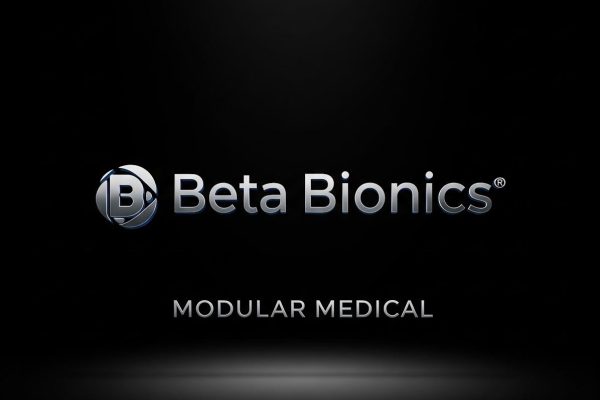Monday’s Stock Market Sees Mixed Performance While Biotech & Tech Take A Hit – ($ADT $CORT $DIA $EPRX $SPY $SER Rise!)

The U.S. stock market exhibited mixed movements on Monday, driven by significant corporate developments and regulatory upheavals. Key sectors, including biotechnology and financial services, experienced notable shifts as investors reacted to pivotal announcements. The Dow Jones Industrial Average and S&P 500 rebounded from early-session losses, while the Nasdaq Composite struggled to recover fully. The Dow gained 417.86 points (+1.0%) to close at 42,001.76, and the S&P 500 rose 30.91 points (+0.6%) to end at 5,611.85. In contrast, the Nasdaq Composite slipped 23.70 points (-0.1%) to settle at 17,299.29 after recovering from a sharper intraday decline of up to 2.7%. The initial sell-off was fueled by investor concerns over escalating trade tensions. Reports over the weekend suggested the potential for broader tariffs, including a proposed universal 20% tariff on all imports starting April 2. This uncertainty led to a flight to safe-haven assets like U.S. Treasuries early in the session, although bond buying eased as equities stabilized later in the day.Treasury yields reflected this dynamic, with the 10-year yield closing one basis point lower at 4.25% after touching an intraday low of 4.19%. The 2-year yield remained unchanged at 3.91%, maintaining its year-to-date decline of 33 basis points.
Tech and Biotech Sector Performance
Despite the general market rebound, large cap tech stocks underperformed:
-
NVIDIA fell 1.2% to $108.38.
-
Microsoft declined 0.9% to $375.39.
-
Amazon dropped to $190.26 (-1.3%).
-
Tesla slid to $259.16 (-1.7%).
The resignation of Dr. Peter Marks, the FDA’s top vaccine regulator, sent shockwaves through the biotech sector. Marks’ departure, reportedly in protest of Health Secretary Robert F. Kennedy Jr.’s vaccine policies, heightened concerns about the future of vaccine approvals and regulatory stability. Stocks of major vaccine manufacturers like Moderna and Novavax fell sharply by over 11% and 6%, respectively, while the SPDR S&P Biotech ETF dropped nearly 5% in early trading and closed down 3.91% on the day. Analysts cautioned that Marks’ exit could undermine investor confidence in the FDA’s scientific independence, further pressuring an already struggling biotech industry
Economic Data
The March Chicago PMI came in at 47.6, exceeding expectations of 45.3 but remaining below the crucial expansion threshold of 50, signaling continued contraction in manufacturing activity.
Looking Ahead
Investors will turn their attention to key economic data scheduled for Tuesday:
-
Final March S&P Global U.S. Manufacturing PMI (prior: 49.8)
-
February Construction Spending (consensus: +0.4%; prior: -0.2%)
-
February Job Openings (prior: 7.74 million)
-
March ISM Manufacturing Index (consensus: 49.8; prior: 50.3)
Rocket Companies Acquires Mr. Cooper in $9.4 Billion All-Stock Deal
Rocket Companies (RKT) announced its acquisition of Mr. Cooper Group in an all-stock transaction valued at $9.4 billion. The merger is set to create a mortgage powerhouse, representing one in every six U.S. home loans and adding nearly 7 million customers to Rocket’s portfolio. While Mr. Cooper’s shares surged 27% on the news, Rocket’s stock dipped by 4.4%, reflecting investor caution amid a challenging housing market marked by high mortgage rates and affordability issues. Jay Bray, CEO of Mr. Cooper, will transition to lead Rocket Mortgage, emphasizing a unified strategy to streamline the homeownership experience.
Corcept Therapeutics Soars on Positive Phase 3 Trial Results
Corcept Therapeutics’ (CORT) stock skyrocketed by over 84% following the announcement that its Phase 3 ROSELLA trial for relacorilant met its primary endpoint in treating platinum-resistant ovarian cancer. The combination therapy demonstrated a 30% reduction in disease progression risk and extended median overall survival to 16 months compared to 11.5 months with chemotherapy alone. With plans to submit a New Drug Application (NDA) in Q3 2025, Corcept aims to establish relacorilant as a new standard of care for this challenging cancer type. The stock closed at $114.22, marking a dramatic rise from its previous close of $54.63.
Vista Partners Watchlist Highlights

Serina Therapeutics (SER, $5.67, +7.18%) is a clinical-stage biotechnology company developing a pipeline of wholly owned drug product candidates to treat neurological diseases and other indications. Serina’s POZ Platform™ provides the potential to improve the integrated efficacy and safety profile of multiple modalities including small molecules, RNA-based therapeutics and antibody-based drug conjugates (ADCs). Serina is headquartered in Huntsville, Alabama on the campus of the HudsonAlpha Institute of Biotechnology. For more information, please visit https://serinatherapeutics.com.
On March 25, Serina reported its financial results for the full year ended December 31, 2024 and provided recent business highlights. “We are encouraged by the progress we’ve made this year. Our partnership with Enable Injections’ wearable technology, combined with our POZ optimization technology, is poised to deliver a differentiated product profile and potential best-in-class therapy for advanced Parkinson’s patient care. We are on track towards our goal of dosing the first patient in a Phase 1b clinical trial in the fourth quarter,” said Steve Ledger, CEO of Serina Therapeutics. “We also continue to advance our POZ Platform™ in addressing complex neurological needs and remain committed to pushing the boundaries of the platform’s potential in RNA and ADC therapeutics innovation to improve patient outcomes and quality of life.”
On March 24, Serina announced that Randall Moreadith, M.D., Ph.D., Chief Development Officer, will present new data at the ACS Spring 2025 Meeting and Expo in San Diego, CA. His presentation, titled “A Non-Immunogenic LNP for Gene Delivery: Characterization of Poly(oxazoline) Lipid Nanoparticles,” will highlight findings on the immunogenic profile of Serina’s proprietary POZ-lipid technology. Dr. Moreadith will share data demonstrating that Serina’s POZ-lipid, a key component of lipid nanoparticles (LNPs), did not trigger an IgM or IgG antibody response following repeat dosing in rats. In contrast, polyethylene glycol (PEG)-lipid standards, commonly used in current LNP formulations, elicited a strong and boosted antibody response. Anti-PEG antibodies have been implicated as a potential cause of anaphylaxis and other serious adverse events observed in humans receiving PEGylated mRNA vaccines, such as those from Pfizer and Moderna. The absence of an immune response to Serina’s POZ-lipid represents a novel discovery that could enable the development of safer and more effective LNP formulations for gene therapy and RNA-based medicines.
On March 10, Jones Research analyst Justin Walsh issued an Initiation of Coverage report on Serina with a Buy Rating and a $11 price target titled, “Realizing Next-Generation Drug Delivery with POZ – Compelling First Opportunity in Advanced Parkinson’s Disease.” To obtain the research report please email jwalsh@jonestrading.com.
On Feb. 12, Serina announced the appointment of Jay Venkatesan, MD, MBA, to its Board of Directors. Dr. Venkatesan brings deep expertise in biotechnology investment, company building, and strategic growth, having successfully led and advised multiple biopharma companies through pivotal stages of development, including high-profile mergers and acquisitions. Dr. Venkatesan most recently served as Chairman, President, and CEO of Angion Biomedica until its merger with Elicio Therapeutics in 2023. He currently serves as a Board Director at Elicio Therapeutics. Previously, he was President and Board Director of Alpine Immune Sciences, which he co-founded as a Managing Partner of Alpine BioVentures. Alpine Immune Sciences was acquired by Vertex Pharmaceuticals for $4.9 billion in May 2024. Dr. Venkatesan has a distinguished career spanning investment and operational leadership roles. Before Alpine, he founded and managed Ayer Capital, a global healthcare investment fund. Earlier in his career, he was a director at Brookside Capital, a division of Bain Capital, where he co-managed healthcare investments. He also held roles as a venture investor with Patricof & Co. Ventures (now Apax Partners) and as a consultant at McKinsey & Co. Dr. Venkatesan holds an M.D. from the University of Pennsylvania School of Medicine and an M.B.A. from the Wharton School of the University of Pennsylvania. He earned his B.A. from Williams College.
Serina (Feb. 3) announced the successful closing of the second $5 million tranche of its previously announced $10 million equity financing with strategic shareholder JuvVentures (UK) Limited. The transaction provides Serina with funding to continue advancing SER-252 (POZ-apomorphine), enabled by its proprietary POZ Platform™ drug optimization technology, into a Phase 1 clinical trial in advanced Parkinson’s disease patients in the second half of 2025. The closing represented the second tranche of the $10 million total financing announced on December 2, 2024. The financing reinforces Serina’s ability to advance SER-252 into first-in-human studies. At closing, Serina issued 500,000 shares of common stock at $10 per share, representing a 113% premium to the closing price on January 31, 2025. Additionally, Serina issued warrants to JuvVentures for up to 755,728 shares of common stock at an exercise price of $18.00 per share. “This financing strengthens our cash position as we advance SER-252 into the clinic,” said Steve Ledger CEO of Serina Therapeutics. “With a differentiated approach to continuous dopaminergic stimulation and an innovative drug delivery system, we believe SER-252 has the potential to provide meaningful benefits for patients with Advanced Parkinson’s disease. We remain focused on initiating our Phase 1 trial in the second half of this year.”
On Jan 15, Serina announced the sale of its UniverXome subsidiary. The transaction was finalized on December 23, 2024 and eliminated $11.2 million in associated subsidiary-level debt, positioning Serina with a debt-free balance sheet heading into 2025. The UniverXome subsidiary was established prior to Serina’s reverse merger with AgeX Therapeutics in March 2024 to own the legacy assets of the predecessor company. Steve Ledger, CEO of Serina, commented, “This transaction underscores our commitment to maintaining a focused operational strategy centered on advancing SER-252, our lead candidate for advanced Parkinson’s disease, into clinical development. By achieving a debt-free balance sheet, we have strengthened our financial foundation, enabling us to accelerate our patient-driven mission. Additionally, this allows us to further explore the broad potential of our POZ Platform™ to address unmet needs across multiple therapeutic modalities, including small molecules, lipid nanoparticles (LNPs), and antibody-drug conjugates (ADCs).”
On Jan. 14, Serina announced the appointment of Karen J. Wilson to the Board of Directors. Ms. Wilson brings over three decades of leadership experiences in the life sciences sector. She currently serves as a board director for Connect Biopharma Holdings Limited, Elicio Therapeutics, Inc. and LAVA Therapeutics N.V. Previously, she held the position of Senior Vice President of Finance at Jazz Pharmaceuticals plc, where she also served as Principal Accounting Officer and Vice President of Finance. Prior to joining the Jazz Pharmaceuticals organization in February 2011, she held senior finance roles at PDL BioPharma, ViroLogic, and Novare Surgical Systems and was a consultant and auditor for Deloitte & Touche LLP. Ms. Wilson is a Certified Public Accountant and received a B.S. in Business from the University of California, Berkeley. Ms. Wilson stated, “I am excited to join Serina at such a pivotal time in its growth. I look forward to working with the talented executive team and fellow board members to help drive the company’s vision forward and make a meaningful impact in the lives of patients.”

On Dec. 18, Serina’s CEO, Steven A. Ledger presented at Tribe Public’s Webinar Presentation and Q&A Event titled “Enabling Continuous Drug Delivery for Parkinson’s Disease & Beyond.”
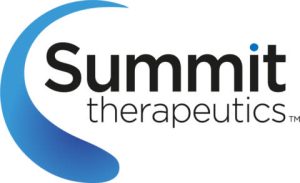
Summit Therapeutics Inc. (NASDAQ: SMMT, $19.29,-5.07%), a biopharmaceutical oncology company focused on the discovery, development, and commercialization of patient-, physician-, caregiver- and societal-friendly medicinal therapies intended to improve quality of life, increase potential duration of life, and resolve serious unmet medical needs, announced (March 17) that Robert LaCaze has joined Summit Therapeutics as Chief Commercial Officer, reporting to Manmeet S. Soni, Chief Operating Officer and Chief Financial Officer, effective immediately. Robert LaCaze is a seasoned biopharmaceutical executive with over 35 years of extensive leadership experience in commercial strategy and execution, with a proven track record of driving revenue growth and expanding market presence for various oncology products. He has held senior positions at major pharmaceutical companies like Bayer Healthcare and Bristol-Myers Squibb. At Bayer, he served as Executive Vice President and Head of the Oncology Strategic Business Unit, overseeing the global oncology franchise and serving on the Executive Committee for Bayer Pharmaceuticals. Before that, he was Senior Vice President and Head of Global Oncology at Bristol-Myers Squibb, leading the vision, strategy, and execution of the immuno-oncology franchise.
Summit announced (Jan. 16) the grant of inducement awards of options to purchase a collective total of up to 145,550 shares of common stock. Awards were made to nine new employees of the Company. The awards were granted as an inducement material to the new employees becoming employees of the Company in accordance with Nasdaq Listing Rule 5635(c)(4) and have been approved by the Company’s Compensation Committee. The inducement awards were granted on January 10, 2025. The options have a ten (10) year term and an exercise price of $17.85 per share, the closing price per share of the Company’s common stock as reported by Nasdaq on January 10, 2025. The options were granted from a pool of equity incentives reserved by the Compensation Committee on May 3, 2024 for issuance as inducements to new employees in accordance with Nasdaq Listing Rule 5635(c)(4).
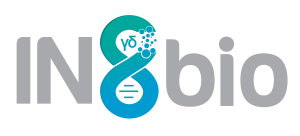
IN8bio, Inc. (Nasdaq: INAB, $1660, -15.35%) is a clinical-stage biopharmaceutical company developing innovative gamma-delta T cell therapies.
IN8bio is participating in multiple sessions at the Immuno-Oncology 360° (IO360°) Conference 2025, held March 24-26, 2025, in Boston, MA.
On March 12, Tribe Public hosted the Webinar Event “The DeltEx Platform: Advancing Innovative Immune Solutions for Cancer and Autoimmune Diseases” featuring IN8bio’s’ CEO William Ho. Watch it below now:
On March 3, IN8Bio unveiled INB-600, its potentially breakthrough next generation γδ T cell-based TCE platform. It is designed to address one of the biggest shortcomings of current existing γδ TCEs – insufficient numbers of γδ T cell effector cells to drive real clinical impact. This groundbreaking platform leverages γδ T cells’ unique properties targeting applications in both oncology and autoimmune indications with potentially greater safety and tolerability than current CAR-T and TCE approaches. The platform’s first candidate, INB-619, targets CD19, a key marker broadly found on B cells, which play a central role in leukemias, lymphomas, and autoimmune diseases. In preclinical models, INB-619 demonstrated: Rapid and sustained B-cell depletion – target cells were eradicated as γδ T cells continued expanding up to 450-fold with continued proliferation until the target cells were undetectable, Simultaneous expansion and activation of both major γδ T cell subsets (Vδ1+ and Vδ2+) leverages both the rapid antigen presenting properties of Vδ2+ T cells and the longer-term resistance against exhaustion and tissue residence properties of Vδ1+ T cells, potentially resulting in deeper B cell depletion, & Lower cytokine (IL-6) secretion, potentially reducing the risk of dangerous side effects such as CRS and ICANs, two of the most severe side effects limiting CAR-T and traditional CD3-TCE adoption in autoimmune indications.
On Feb. 11, IN8bio announced encouraging new clinical data from the ongoing Phase 1 investigator-sponsored trial of INB-100, an allogeneic gamma-delta T cell therapy designed to help patients with complex leukemias, including AML. INB-100, given following hematopoietic stem cell transplantation (HSCT), is demonstrating the potential to achieve durable long-term remissions and improved survival. The data will be presented at the 2025 Tandem Meetings | Transplantation & Cellular Therapy Meetings of ASTCT and CIBMTR, hosted in Honolulu, HI. Highlights from today’s release are as follows: 100% of AML patients remain relapse-free, Trial displays improved survival outcomes vs. standard treatment, Results demonstrate activity even with older, high-risk patients receiving reduced intensity conditioning (RIC). William Ho, Chief Executive Officer and co-founder of IN8bio, stated, “We’re incredibly pleased with our efforts to continue to deliver consistent, long-term remission results with INB-100. It’s rare to see 100% relapse-free survival in high-risk AML patients, especially over a prolonged period. For patients who may not have had a clear path forward in the past, INB-100 is providing hope, extending survival, and demonstrating the potential to change the standard-of-care. What makes this even more exciting is the safety profile we’ve observed. Gamma-delta T cells are showing that they can do the job of fighting residual cancer cells without causing significant side effects like CRS or neurotoxicity—issues that often plague other cell therapies. As we continue to enroll patients and expand the trial network, we are working diligently to lay the groundwork for the future regulatory pathway towards a potential registrational trial. The IN8bio team is working hard to de-risk the future path to approval and to bring this innovative therapy towards broader patient access. We are committed to providing further updates later this year as we build momentum toward this goal.”
On December 10, 2024, IN8bio announced updated data from the ongoing Phase 1 trial of INB-100, an allogeneic, haploidentical gamma-delta T cell therapy in older patients with hematologic malignancies undergoing haploidentical stem cell transplant (HSCT) with reduced intensity conditioning (RIC) at the 2024 American Society of Hematology (ASH) Annual Meeting, being hosted in San Diego, CA. Dr. Joseph P. McGuirk, Schutte-Speas Professor of Hematology-Oncology, Division Director, Hematologic Malignancies and Cellular Therapeutics Medical Director, Blood and Marrow Transplant, The University of Kansas Cancer Center stated, “This data demonstrates the potential of allogeneic INB-100 gamma-delta T cells to provide durable relapse-free remissions in high-risk or relapsed AML patients undergoing HSCT. Older, frailer patients who receive non-myeloablative, reduced intensity conditioning regimens typically have a significant risk of relapse. Historically, approximately 25% of AML patients undergoing HSCT would be expected to have a leukemic relapse within the first 100 days post-transplant, with up to nearly 50% of such patients experiencing relapse by one-year, which remains the primary cause of death. The longer AML patients remain in remission post-HSCT, the greater their probability of survival. These observed long-term durable remissions using allogeneic gamma-delta T cells are very encouraging and we look forward to announcing additional data next year.”
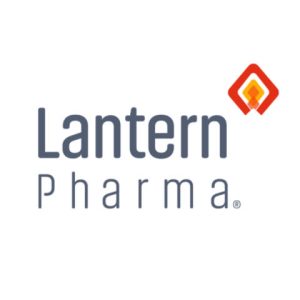
Shares of Lantern Pharma (LTRN), an artificial intelligence (“AI”) company developing targeted and transformative cancer therapies using its proprietary RADR® AI and machine learning (“ML”) platform with multiple clinical stage drug program, closed at $3.54, -.28%.
Lantern announced (Mar. 27) financial results for the fourth quarter and full year ended December 31, 2024, and provided an update on its portfolio of AI-driven drug candidates, the RADR® platform for precision oncology drug development enhancements, and other operational progress. Lantern highlighted the following:
-
HARMONIC™ trial lead-in cohort delivered impressive 86% clinical benefit rate and 43% objective response rate in never-smoker NSCLC patients, with current expansion cohort reinforcing these positive trends as enrollment accelerates in Japan and Taiwan, where 33-40% of NSCLC cases occur in never-smokers, positioning Lantern for multiple clinical readouts in 2025.
-
LP-184 received two U.S. FDA Fast Track Designations in 2024 for Glioblastoma and Triple Negative Breast Cancer, plus three additional Rare Pediatric Disease Designations, strengthening future market potential across multiple high-need indications with multi billion U.S. dollar market potential.
-
Successfully dosed multiple patient cohorts in Phase 1A clinical trials for both LP-184 and LP-284, advancing these synthetic lethal drug candidates toward drug concentration levels that may show therapeutic efficacy in several cancers of high unmet patient need and with multiple orphan and fast track FDA designations.
-
Demonstrated LP-184 synergy with checkpoint inhibitors in TNBC through MD Anderson collaboration, demonstrating ability to transform immunologically “cold” tumors into “hot” tumors by reshaping the tumor microenvironment and modulating T-cell activity in preclinical models.
-
Starlight Therapeutics unveiled recurrent GBM trial design for STAR-001 at SNO 2024, featuring innovative STAR-001+spironolactone combination regimen that leverages synthetic lethality; assembled world-class Scientific Advisory Board from Johns Hopkins, UCSF, and Memorial Sloan Kettering.
-
Showcased industry-leading capabilities in CNS therapeutic development using AI with patent-pending BBB permeability prediction algorithm with unprecedented performance –five of the top eleven rankings on Therapeutic Data Commons leaderboard and processing capabilities of 100,000 molecules per hour at industry-leading accuracy rates.
-
Unveiled innovative AI-powered ADC development module that identified 82 promising targets and 290 target-indication combinations and potentially reducing development timelines by 30-50% and preclinical costs by up to 60% compared to traditional ADC development.
-
The RADR® AI platform surpassed 100 billion oncology-specific data points in 2024, accelerating precision drug development initiatives including biomarker discovery and signature creation, identification of mechanisms of action and synergistic combination regimens, ADC optimization, and continuing to power collaborations with emerging oncology companies and centers.
-
Approximately $24 million in cash, cash equivalent
Lantern announced (Feb. 19) the publication of its PCT patent application (PCT/US2024/019851) covering a novel machine learning solution for predicting blood-brain barrier (BBB) permeability. The application received a favorable PCT search report indicating no significant prior art, substantially strengthening its path to approval. The technology has demonstrated to-date exceptional performance in predicting BBB permeability across a wide range of chemical compounds, processing up to 100,000 molecules per hour with industry-leading accuracy. Notably, Lantern’s AI algorithms for BBB permeability prediction currently hold five of the top eleven positions on the Therapeutic Data Commons Leaderboard1. Lantern believes that this breakthrough capability can accelerate the drug development process by rapidly identifying compounds likely to cross the blood-brain barrier, a critical factor in developing treatments for central nervous system disorders and brain cancers. These identified compounds can then be accelerated and further developed by researchers in cancer drug development and other fields saving time and cost in early-stage molecular characterization.

On Feb. 3, Lantern’s CEO Panna Sharma co-hosted a Tribe Public CEO Presentation and Q&A Webinar Event Titled “AI IN ACTION: Learn How lantern Pharma’s Business Model Has Multiple Paths Towards Success.”You may watch the event video at at this link: https://youtu.be/3LA5Y4Bk-0s?si=pWnx18m8imR2bRNe.

Modular Medical, Inc. (NASDAQ: MODD, $1.09, -.91%), an insulin delivery system technology company preparing to launch a market expansion product with a more accessible, easier to prescribe, and easier to pay for and live with technology. Using its patented technologies, the company seeks to eliminate the tradeoff between complexity and efficacy, thereby making top quality insulin delivery both affordable and simple to learn. Their mission is to improve access to the highest standard of glycemic control for people with diabetes taking it beyond “superusers” and providing “diabetes care for the rest of us.” Modular Medical was founded by Paul DiPerna, a seasoned medical device professional and microfluidics engineer. Prior to founding Modular Medical, Mr. DiPerna was the founder (in 2005) of Tandem Diabetes and invented and designed its t:slim insulin pump. More information is available at https://modular-medical.com.
On March 20, Modular Medical announced the execution of definitive subscription agreements with institutional and accredited investors for a private placement, which is expected to result in gross proceeds of approximately $12 million, before deducting fees and offering expenses. The private placement consists of the sale of units comprised of two shares of common stock, together with one warrant to purchase one share of common stock. The units are being sold at a purchase price of $1.92 per unit and were priced at-the-market under the rules of the Nasdaq Stock Market. The private placement is expected to close on or about March 25, 2025, subject to the satisfaction of customary closing conditions. The Company intends to use the proceeds from the private placement for supply-chain optimization and margin improvement on its MODD1 product in preparation for broad commercial availability and preparing the submission to the FDA of a tubeless version of the MODD1 product, which the Company currently believes it will submit to the FDA in the third quarter of 2025, along with ongoing work to obtain the CE mark required for overseas markets.
Modular announced (Jan. 30) that BSI Group will serve as the notified body for the European regulatory clearance process. Unlike the U.S. process, European Union (“E.U.”) clearance of a medical device is driven by a series of audit steps driven by a third party, known as a notified body, retained by the sponsor of the device to determine safety and efficacy, and the notified body then certifies that the CE mark standards have been met. Once the CE mark is obtained, a device can be marketed and sold in Europe and other areas that rely on the CE mark. BSI Group will serve as the notified body for Modular Medical for its CE clearance process.
After the close on December 19, Modular Medical announced a licensing and partnership agreement with Nudge BG. Lane Desborough, CEO of Nudge BG stated, “We are very excited to partner with Modular Medical to bring the next generation of automated insulin delivery (“AID”) to the marketplace. Nudge BG’s adaptive full closed loop AID technology, unlike the present Hybrid Closed Loop products, complements Modular Medical’s easy-to-use and cost-effective MODD1 insulin pump technology. Our combined system is intended to nudge blood glucose by making small changes to insulin delivery based on estimated glucose inputs from a continuous glucose monitor. We believe most people living with insulin-requiring diabetes find it difficult or impossible to sustain the therapy effort which contemporary AID systems demand, including counting carbohydrates and calculating bolus delivery amounts, preventing them from reaping the benefits of the present technology. It has been the goal of Nudge BG to design an AID system that will truly make the diabetes management experience both effective and less burdensome for users. Our system will fully automate mealtime insulin delivery, freeing people with diabetes from the risk and difficulty of bolusing, while still achieving glycemic goals.”
Paul DiPerna, President and CTO of Modular Medical, stated “Our goal at Modular Medical is to bring the benefits of insulin pump technology to the approximately 80% of potential adopters who are not on pumps because they see current AID-enabled systems as too complex, too cumbersome, and too costly. The Nudge BG partnership is another step in our efforts to make the experience of diabetes management as low touch and simple as possible by reducing the amount of time, training, and effort a user will spend daily on managing insulin, while still providing the beneficial results of pumping as compared to multiple daily injections.”
Mr. Desborough has been developing control algorithms in safety-critical industries for the past 35 years. He was formerly Co-Founder and Chief Engineer of Bigfoot Biomedical and previously served as Chief Engineer, Closed Loop/Insulin Delivery at Medtronic Diabetes. Mr. Desborough has been developing commercial AID systems since 2010, soon after his son was diagnosed with type-1 diabetes.
On November 21, Modular announced that it has priced an underwritten public offering (the “offering”) of 5,450,573 shares of its common stock. The offering was led by existing institutional investors, including Manchester Explorer, L.P., which is the largest shareholder of the Company and is managed by Jeb Besser, Modular Medical’s Chief Executive Officer. The shares of common stock are being sold at a price to the public of $1.50 per share of common stock, less underwriting discounts and commissions. The gross proceeds to the Company from the offering are expected to be approximately $8.2 million, before deducting underwriting discounts, commissions and estimated offering expenses payable by the Company. The Company intends to use the net proceeds from the offering to fund operations and for working capital and general corporate purposes, including capital expenditures. The offering is expected to close on or about November 25, 2024, subject to the satisfaction of customary closing conditions.
On November 11, Modular Medical, Inc.’s Chief Executive Officer, Jeb Besser delivered a presentation titled “Tailoring GLP-1 Weight Loss Treatments: Innovative Approaches To Personalized Dosing.” He was also available for a 5-10 minute Q&A session at the end of the presentation.
On Nov. 7 Modular Medical announced successful results from its pre-clinical GLP-1 proof of concept study. They highlighted the following: Study showed more potent weight loss and blood glucose control with the addition of a mealtime bolus of a rapid acting GLP-1 to basal delivery, Observed weight loss was 17% at 28 days, a 25% improvement over GLP-1 delivered as basal alone, & Findings suggest that pump delivery may be a viable approach to achieve GLP-1 weight and blood glucose benefits that are comparable with current treatment standards, either as initial treatment or for maintenance, while bringing personalized dosing flexibility. “With these encouraging results, we are now planning to take this concept of a synergistic basal-bolus GLP-1 combination into a human trial using our MODD1 device. We are considering both existing fast acting GLP-1s and other peptides for this trial, as we see this as a platform technology that could be used for more personalized titration for both non-responder or non-adherent patients experiencing GI and other issues with long acting GLP-1s, as well as for other specialty applications in metabolic therapies. This type of application is well suited for our MODD1 pump, given its quick training time, simple interface, high accuracy at low flow rates, reusable low-cost electronics, and a prefill-capable 3mL reservoir,” stated Jeb Besser, CEO of Modular Medical.
On September 18, Modular Medical announced the issuance of U.S. Divisional Patent Application No. 17/968,599. “The issuance of this patent and the associated claims represent a major step in our efforts to protect the intellectual property in the MODD1 pump platform,” stated Jeb Besser, CEO of Modular Medical. “Some of the key features of our novel, low-cost and accurate insulin delivery technology are now protected by this important issued U.S. patent, which we believe represents a significant new barrier to entry. Our eight families of patents around our pump are an important part of our strategic value and market positioning, and we look forward to announcing further issuances on our portfolio in the future.”
On Wednesday, September 4, Modular announced it has received U. S. Food and Drug Administration (“FDA”) clearance to market and sell its MODD1 pump in the United States. With its commercial manufacturing infrastructure substantially established, the Company anticipates the MODD1 should be available for sale in early 2025.

James (Jeb) Besser, CEO of Modular Medical (NASDAQ: MODD)
“For too long, the benefits of superior glycemic control achieved by insulin pumps have, due to cost and complexity, been restricted to only the most sophisticated, motivated and well-insured users. The goal of Modular Medical has always been to change this by making diabetes technology accessible and affordable to underserved communities. We seek to make the experience of going ‘on a pump’ simpler and less intimidating and to widen the base beyond the current pump users,” said Jeb Besser, CEO of Modular Medical.
 Shares of Indaptus Therapeutics, Inc. (Nasdaq: INDP) closed at $.5499, -6.80%. Indaptus is a company with the ability to harness both the body’s innate and adaptive immune responses, believes that they are uniquely positioned to revolutionize the treatment of cancer and certain infectious diseases.
Shares of Indaptus Therapeutics, Inc. (Nasdaq: INDP) closed at $.5499, -6.80%. Indaptus is a company with the ability to harness both the body’s innate and adaptive immune responses, believes that they are uniquely positioned to revolutionize the treatment of cancer and certain infectious diseases.
On March 25, Indaptus announced that its chief medical officer, Roger Waltzman, M.D., M.B.A. will be moderating a panel at the annual CMO360 Summit, being held April 7-8 in Boston. Dr. Waltzman’s panel, titled “Ensuring Effective and Efficient Trials Through Clinical Operations” will be Monday, April 7th from 4:05PM – 4:35PM ET.
On March 20, Indaptus Therapeutics, Inc. (Nasdaq: INDP), a clinical-stage biotechnology company dedicated to developing novel treatments for cancer and viral infections, today provided an update on key pharmacodynamic findings from the weekly dosing cohort of its ongoing Phase 1 trial of Decoy20. As announced the Company has now enrolled more than 20 patients in the weekly dosing cohort, marking a key milestone in the trial. Initial data indicate that Decoy20 at the 30 million cell dose was generally well-tolerated, with a favorable safety profile and promising early signs of clinical benefit, including some patients demonstrating stable disease. Additionally, Decoy20 triggered short-term increases in multiple key immune system biomarkers (cytokines and chemokines), which play a crucial role in activating the body’s natural defenses against cancer.

On March 12, Indaptus’ CEO, Jeffrey Meckler, presented at Tribe Public’s Webinar Presentation and Q&A Event titled “Keys To The Kingdom: Unlocking The Power Of Your Immune System.” You may watch it now at this link.
On March 18, Indaptus announced that it has advanced to a new expansion arm of its Phase 1b/2 clinical trial of Decoy20. This expansion will evaluate the combination of Decoy20 with BeiGene’s PD-1 checkpoint inhibitor, tislelizumab, with a focus on safety, dose optimization, and early signs of anti-tumor activity. effrey Meckler, CEO of Indaptus, commented, “This marks a pivotal step forward for Indaptus and our Decoy platform. Preclinical research has consistently shown that Decoy20 works synergistically with a checkpoint inhibitor, and we now have the opportunity to test that in patients for the first time. While this initial phase will focus on safety and tolerability, we are laying the groundwork for what could be a game-changing approach to treating solid tumors. This combination trial is not just a milestone – it’s an opportunity to showcase our platform’s versatility and move one step closer to improving patient outcomes.”
On March 4, Indaptus announced that it has secured new patent approvals in China, Japan and Israel for its Decoy platform. These patents cover the use of Decoy bacteria compositions for preventing or treating Hepatitis B virus (HBV) and human immunodeficiency virus (HIV) – two diseases that continue to pose major global health challenges. The patents also extend to combination therapies with a variety of both approved and investigational treatments. Dr. Michael Newman, Founder and Chief Scientific Officer of Indaptus, commented, “The allowance of these patents in key international markets highlights the potential of our Decoy platform in the fight against chronic infectious diseases. With millions of people affected by HBV and HIV worldwide, expanding our intellectual property reinforces the novelty and therapeutic promise of our approach.”
On Feb. 25, Indaptus Therapeutics announced that Michael Newman, Founder and Chief Scientific Officer, will present at the 10th Annual Innate Killer Summit, taking place from March 3-5, 2025, in San Diego, California. Dr. Newman will deliver a scientific presentation on Tuesday, March 4, 2025, titled, “Employing Attenuated & Killed Gram-Negative Bacteria to Induce NK-Mediated Anti-Tumor Immunity.”
In this presentation, Dr. Newman will discuss:
-
The science behind Indaptus’ Decoy platform, a multi-immune receptor agonist designed to trigger broad innate and adaptive immune activation against tumors.
-
How the Company’s “Pulse-Prime” approach supports safe and effective anti-tumor activity in pre-clinical models, including the role of Natural Killer (NK) cells.
-
Clinical data from Indaptus’ ongoing Phase 1 trial evaluating Decoy20 in advanced solid tumors.
On Jan 13, Indaptus announced that it has entered into securities purchase agreements with investors for the issuance and sale in a private placement priced at-the-market under Nasdaq rules of an aggregate of 2,109,383 of its shares of common stock and accompanying warrants to purchase up to an aggregate of 2,109,383 of its shares of common stock. The combined effective purchase price for each share of common stock and associated warrants is $1.065. The closing of the offering is expected to take place on or about January 15, 2025, subject to the satisfaction of customary closing conditions.

Eupraxia Pharmaceuticals (EPRX) closed at $3.28, +3.47%. Eupraxia is a clinical-stage biotechnology company leveraging its proprietary DiffuSphere™ technology to optimize drug delivery for applications with significant unmet need. The Company strives to provide improved patient benefit and has developed technology designed to deliver targeted, long-lasting activity with fewer side effects. DiffuSphere™, a proprietary, polymer-based micro-sphere technology, is designed to facilitate targeted drug delivery, with extended duration of effect, and offers multiple, highly tuneable pharmacokinetic (PK) profiles. This investigational technology can be engineered for use with multiple active pharmaceutical ingredients and delivery methods.
Recent Operational and Financial Highlights
-
On October 2, 2024, the Company announced the appointment of Dr. Amanda Malone as the Chief Operating and Scientific Officer of the Company.
-
On October 10, 2024, the Company announced a poster presentation at the United European Gastroenterology Week 2024 featuring data from cohorts one through four of Eupraxia’s ongoing RESOLVE trial in EoE.
-
On October 15, 2024, the Company announced that Phase 2b data from its SPRINGBOARD trial evaluating EP-104IAR for the treatment of knee osteoarthritis was published in leading peer reviewed medical journal The Lancet Rheumatology.
-
On October 28, 2024, the Company announced two poster presentations at the American College of Gastroenterology 2024 Annual Scientific Meeting centered on EP-104GI for the treatment of EoE. One poster received a Presidential Award from the conference, which is a distinction for high quality, novel, unique, and interesting research, while the other was designated an “Abstract of Interest”.
-
On October 31, 2024, the Company announced the closing of a non-brokered private placement for gross proceeds of C$44.5 million, the appointment of Mr. Joseph Freedman to its Board of Directors, and the termination of its C$12 million convertible debt facility.
-
On November 12, 2024, the Company announced positive 12-week data from the fifth cohort of the ongoing RESOLVE trial in patients with eosinophilic esophagitis (“EoE”), noting increasingly positive data on efficacy and safety outcomes as well as emerging evidence of improved patient responses related to higher dosing levels.
-
On November 14, 2024, the Company announced a poster presentation at the American College of Rheumatology Convergence 2024 Annual Meeting covering data from Eupraxia’s Phase 2b SPRINGBOARD trial evaluating EP-104IAR for the treatment of knee osteoarthritis.
-
Subsequent to quarter end, on February 18, 2025, the Company announced the return of seasoned capital markets executive Alex Rothwell to the role of Chief Financial Officer, succeeding the retiring Bruce Cousins.
-
Subsequent to quarter end, on February 25, 2025, the Company announced positive 12-week data from the sixth cohort of the ongoing RESOLVE trial in patients with EoE noting no adverse events and continued positive data on efficacy and safety outcomes as well as further evidence of improved patient responses tied to higher dosing levels.
Fourth Quarter 2024 Financial Review
The Company incurred a net loss of $7.5 million for the three months ended December 31, 2024, versus a net loss of $10.6 million for the three months ended December 31, 2023. The decrease in net loss was primarily due to lower research and development costs and reduced other expenses incurred during the period.
The Company had cash of $33.1 million as of December 31, 2024, up from $19.3 million at the end of the fourth quarter of 2023. These funds are being used to fund clinical trials in EP-104 and the remainder of the proceeds will be used for general and administrative expenses, working capital needs and other general corporate purposes.
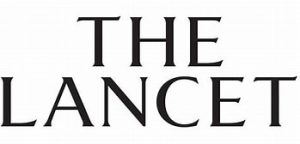
On October 15, Eupraxia announced that Lancet Rheumatology, a leading independent, peer-reviewed journal committed to sharing progressive content relevant to rheumatology specialists worldwide, recently published Eupraxia’s Phase 2 data from its SPRINGBOARD trial evaluating EP-104IAR for the treatment of knee osteoarthritis. Publication of Eupraxia’s Phase 2b data in Lancet Rheumatology, a distinguished and respected journal, raises the profile of EP-104IAR. As outlined in Lancet Rheumatology, Eupraxia’s EP-104IAR imparts clinically significant and durable pain relief, while also having minimal changes in glucose and cortisol, along with stable fluticasone proportionate concentrations in plasma. The U.S. Centers for Disease Control and Prevention estimates that knee osteoarthritis affects more than 30 million people in the U.S. alone. You may read the Lancet Publication regarding Eupraxia at this link.
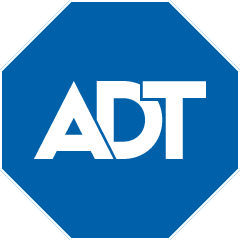
Shares of ADT Inc. (ADT), a leading provider of monitored security and automation solutions for residential and small business customers in the United States and Canada, closed at 8.14, +.49%.
On Jan. 22, ADT announced the appointment of Thomas Gartland to the Company’s Board of Directors as an additional independent director. In conjunction with his appointment, Gartland will join the Board’s Audit Committee. Gartland is chairman and chief executive officer of Montway Auto Transport, a privately held auto transport company, and has held this position since 2023. Prior to Montway, Gartland served as executive chairman of Scan Global Logistics and as president, North America, for Avis Budget Group. Gartland serves on the boards of Xenia Hotels & Resorts, Inc. and ABM.

GeoVax Labs, Inc. (Nasdaq: GOVX) closed at $1.06, -4.50%, a clinical-stage biotechnology company developing immunotherapies and vaccines against cancers and infectious diseases, announced (MAR. 27) its financial results and key operational accomplishments for the year ended December 31, 2024 & highlighted the following: GEO-CM04S1 BARDA/Project NextGen Phase 2b trial preparations ongoing with manufacturing of clinical trial materials underway and clinical sites confirmed, Additional data evaluating GEO-CM04S1 as booster to mRNA vaccines in healthy adults expected in first half of 2025, Clinical evaluation of GEO-MVA, vaccine candidate for protection against Mpox and Smallpox, expected to begin in second half of 2025, & Planning underway for Phase 2 clinical trial of Gedeptin(R) as treatment for first recurrent head and neck cancer in combination with immune checkpoint inhibitor. “We are entering 2025 from a position of strength following a pivotal year for GeoVax,” stated David Dodd, GeoVax’s Chairman and CEO. “In June 2024, we received BARDA’s Project NextGen award of nearly $400 million to advance GEO-CM04S1 in a Phase 2b clinical trial. Throughout the remainder of 2024, we were able to secure a high quality CRO partner and lay the foundation for our 10,000-patient study, progressing to producing the vaccine material for use in the clinical trial.” “We continue to build on our growing body of clinical evidence in support of GEO-CM04S1. In April 2024, we presented data at the 24th Annual World Vaccine Congress, highlighting data demonstrating vaccine induced immunity protects against infections, serious disease symptoms and death. GeoVax also reported positive initial safety and immune response data from the Phase 2 clinical trial of GeoVax as a booster in healthy adults who had previously received the Pfizer or Moderna mRNA vaccine and observed statistically significant increases in neutralizing antibody responses against multiple SARS-CoV-2 variants. We continue to strive toward a solution for the critically underserved immunocompromised patient population, where the current mRNA vaccines do not provide adequate protection,” Dodd continued.
Recently, Chairman & CEO, David Dodd presented at Tribe Public’s CEO Presentation and Q&A Webinar Event titled “MPOX 2025: Navigating the Global Public Health Emergency.” The presentation covered another of topics that included the following:
- Mpox remains a global public health crisis in 2025, with Clade 1b exhibiting higher transmissibility and severity than Clade 2.
- The Democratic Republic of the Congo (DRC) is the epicenter, with over 60,000 suspected cases and 1,300 deaths in 2024 alone.
- The virus has now spread to multiple countries, including the U.S., Canada, and Europe, raising concerns about global containment.
- The U.S. has confirmed four Clade 1b cases (California, Georgia, New Hampshire, and New York), prompting the need for urgent action.
- The current vaccine supply chain is inadequate, relying heavily on a single non-U.S. manufacturer.
- Delays in vaccine distribution, high costs, and limited production capacity have exacerbated the crisis, particularly in Africa, where vaccine stockpiles remain largely unused due to logistical and political challenges.
- GEO-MVA, the GeoVax Mpox vaccine candidate is advancing to clinical evaluation, anticipated for H2 ’25.
On March 12, GeoVax announced its initial steps toward establishing a strategic presence in Europe, with the UK as its initial footprint. This move aligns with the Company’s commitment to advancing its vaccine and immunotherapy pipeline through global collaborations. Efforts are underway to identify a UK location best suited to align with GeoVax’s development and corporate strategy. The Company already has several established connections in the UK and broader European region, including:
-
Scientific Expertise: Professor Teresa Lambe, a principal investigator at the Oxford Vaccine Group, recently joined GeoVax’s Scientific Advisory Board. Professor Lambe played a pivotal role in the development of the Oxford/AstraZeneca COVID-19 vaccine and has extensive experience in vaccine design and evaluation.
-
Manufacturing Partnerships: GeoVax maintains an existing contract development and manufacturing organization (CDMO) relationship with Oxford Biomedica PLC (Oxford, UK), as well as additional collaborations with Oxford Biomedica (France), with facilities in Strasbourg and Lyon.
-
Technology Licensing: The Company has a broad licensing agreement with ProBioGen AG (Berlin, Germany) to utilize their AGE1 continuous avian cell line for the manufacture of MVA vaccines.
-
European Collaborations: GeoVax currently collaborates with multiple European-based service providers and UK academic partners, reinforcing the strategic rationale for establishing a presence within the region.
To support this initiative, GeoVax is working closely with Professor Teresa Lambe and clinical investigators and scientists in Oxford and other academic centers across the UK to develop preclinical, translational, and clinical projects supporting its pipeline. Additionally, Dr. Deborah Spencer, a highly regarded expert in industry-academic partnerships and public health development, has recently been retained to facilitate and coordinate initiatives in the UK and Europe. Establishing a strategic presence in Europe will support GeoVax’s infectious disease vaccine development efforts and play a key role in advancing Gedeptin(R), the Company’s lead immuno-oncology candidate. Currently in clinical development for the treatment of advanced head and neck cancers, Gedeptin is anticipated to be further developed for use with immune checkpoint inhibitors as a potential treatment for various other solid tumors. GeoVax holds worldwide rights to Gedeptin for all indications.
Quote of the Day
“A rebirth out of spiritual adversity causes us to become new creatures.” – James E. Faust
Videos
Post View Count : 501












